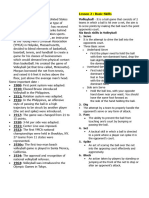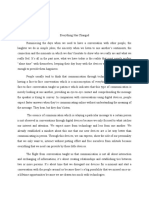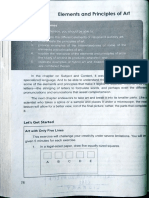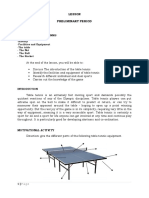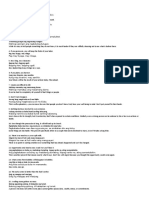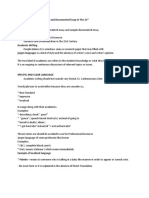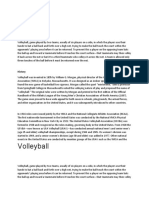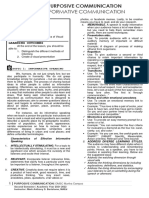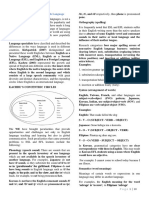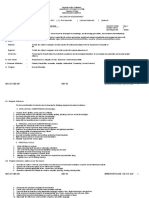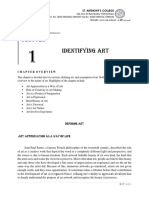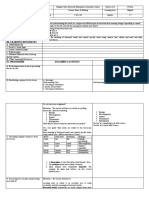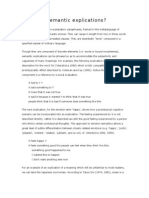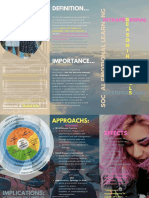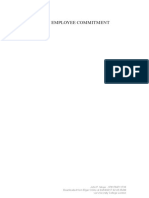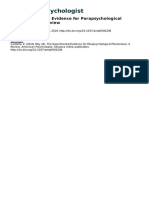0% found this document useful (0 votes)
148 views7 pages07 - Unit I Lesson 3
This document provides an overview of formal and informal language registers and discusses appropriate usage. It begins with definitions of formal and informal English. Formal language is more academic and objective, often used for writing, while informal is more relaxed and friendly, used for everyday conversations. The document then gives examples of shifting language tones when speaking to different people. It also defines and provides examples of slang, jargon, cliches and sexist language, explaining why these should be avoided or replaced in certain contexts. Gender-inclusive alternatives to sexist terms are provided. The importance of using an appropriate register is emphasized for clear communication and inclusion of all audiences.
Uploaded by
Hansjeio Miro LebiteCopyright
© © All Rights Reserved
We take content rights seriously. If you suspect this is your content, claim it here.
Available Formats
Download as DOCX, PDF, TXT or read online on Scribd
0% found this document useful (0 votes)
148 views7 pages07 - Unit I Lesson 3
This document provides an overview of formal and informal language registers and discusses appropriate usage. It begins with definitions of formal and informal English. Formal language is more academic and objective, often used for writing, while informal is more relaxed and friendly, used for everyday conversations. The document then gives examples of shifting language tones when speaking to different people. It also defines and provides examples of slang, jargon, cliches and sexist language, explaining why these should be avoided or replaced in certain contexts. Gender-inclusive alternatives to sexist terms are provided. The importance of using an appropriate register is emphasized for clear communication and inclusion of all audiences.
Uploaded by
Hansjeio Miro LebiteCopyright
© © All Rights Reserved
We take content rights seriously. If you suspect this is your content, claim it here.
Available Formats
Download as DOCX, PDF, TXT or read online on Scribd
/ 7







